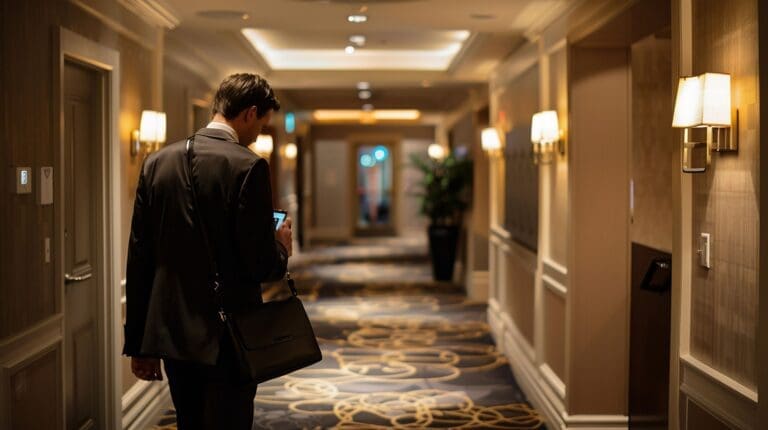 Sustainability is “the primary moral and economic imperative of the 21st century.” If a business hopes to continue into the indefinite future, it can no longer be half-hearted when it comes to sustainability. In this day and age, many industries and businesses tend to consider sustainability and green practices in their operations; the tourism sector of course is not an exception. It is a fact that tourism is among the growing industries with tremendous environmental impact. That shifts the concern toward tourism and its impact on an international scale.
Sustainability is “the primary moral and economic imperative of the 21st century.” If a business hopes to continue into the indefinite future, it can no longer be half-hearted when it comes to sustainability. In this day and age, many industries and businesses tend to consider sustainability and green practices in their operations; the tourism sector of course is not an exception. It is a fact that tourism is among the growing industries with tremendous environmental impact. That shifts the concern toward tourism and its impact on an international scale.
In an era of climate change, with global interest focused growingly on renewable energy sources and environmental protection, hotel facilities are among the top five in terms of energy consumption in the tertiary building sector. Hotels use energy intensively via a wide range of services offered. That happens because clients request for more quality amenities, and because of their 24h operation as well.
In one hand, tourism has a significant positive impact on the global economy, but on the other hand, it puts pressure on the natural and built environment. Tourism activities result in increased production and demand for energy. Also, at the disruption of ecosystems, because of the buildings and infrastructure it requires. According to the Hotel Energy Solutions project, the total energy consumption by end use in a typical hotel is significantly huge (due to total energy demand for space conditioning, domestic hot water and lighting). The ‘movement’ of sustainable development and environmental issues becomes reality. Hence, destinations and businesses must formulate new policies to harmonize tourism and environment through sustainable practices.
Whilst consumers demand green services and green products, the tourism accommodation sector has positively responded to green consumers’ demand. Green hotel concepts with the background of sustainable tourism have gained recognition as a business strategy. That certainly has gained a competitive edge in the global tourism market. Studies reveal that “one of the most important reasons for going green is the customer”. The customer can be the main stakeholder in driving hotels to be environmentally friendly. In reality an increasing “consumer base exists” and is attracted by the ecological appeal of lodging facilities ( Int. J. Hosp. Manag. 2016 ].
Furthermore, green consumers’ demands affect green hotels’s requiring practices that are in line with sustainability. Nevertheless, consumers’ demand plays a significant role in mediating hotels’ green practices.Fatma et al. [15] (p. 40) notes that awareness increases among consumers toward social and environmental issues. That of course leads to a demand that tourism companies protect the cultural heritage and places visited by tourists.
Sustainable Hotels’s
The good news is that not only big hotel chains adopt sustainable practices, but also smaller ones. Generally, in SMEs, energy demands are smaller per hotel unit due to their much smaller floor area and thus small-scale strategies can make a difference. The small hotel called ‘Kinsterna’, near Monemvassia in the Peloponnese Greece employs a series of energy conscious strategies such as: energy saving light bulbs, room thermostats, energy efficient windows, key cards, non toxic biodegradable cleaning products and so on. For production of hot water and electricity, solar panels and PVs are usually placed on flat or sloped roofs. Furthermore, in the case of renovated old buildings, the hotel complex gains from the passive design principles of traditional Greek architecture.
Small hotels could still gain the edge with a few small green changes.
This is possible by just:
- switching to energy saving light bulbs
- offering organic food options
- recycled toilet paper & soap,
- offering alternative transportation like bikes
- incorporating reusable dishes, glasses
- compost and donating food,
- eco friendly cleaning products, etc.
There are plenty of tips and strategies to bring sustainable best practices to properties. Some might not be right or achievable, but that depends on each property’s financial status and size.
Nowadays, more than ever travelers agree to the small adjustments they need to make to stay somewhere eco-friendly. Some examples of eco friendly hotels are: the Kip in Sri Lanka with ethical furniture, no plastic and raw food, the Bohème in Mykonos that serves glasses of lemonade made from the trees in the hotel garden , the Thirty-Seven Hotel in Malta that asks their guests to save water when showering and to monitor their use of the AC and the Hotel Terra in Jackson Hole, Wyoming that offers radiant floor heating and all-natural Terra Beds, in-room recycling, chemical-free cleaning products, fair-trade coffee and so on.
Sustainable practices and changes
Even small green changes can make a huge difference. In fact it is much simpler for smaller hotels to become more sustainable than it is for huge chains. Think that the owners of small hotels give focus on the overall ambiance and homey atmosphere rather than just making money. These hotels focus on the smallest details by even growing their own vegetable and engaging guests in harvesting. They look beyond what is currently provided to customers and they develop novel experiences and services that have an effect on customer’s eco consciousness.
Without a doubt, all businesses involved in tourism are being asked to do more than ever to solve social and environmental problems. As a result, a growing number of leading companies are taking the challenge of sustainability seriously. They do that not only to reduce their environmental footprint and enhance their reputations but also to improve operations and financial performance. All these companies have certain things in common: inspiring purpose, a complete strategy, a novel and engaging culture and collaboration. They have the skill and the will to partner with a range of other organizations. Such can be other businesses, NGOs, social enterprises, public sector agencies, academia, and so on, to quickly drive sustainability.
Businesses ultimately recognize the growing importance of collaborations for sustainability and the need for their representatives in partnerships to be effective. Then, they will be rightly expecting management educators and leadership training providers to offer training in collaboration. This training is essential to independent directors serving on the boards of sustainability coalitions and coalitions’ staff.
Hilton’s “Sustainable” Partnership
Four years ago Hilton Worldwide announced an initial three-year commitment with World Wildlife Fund (WWF) to reduce its impact on the environment. As part of the partnership, Hilton and WWF collaborated to develop a multi-year water “stewardship strategy”, expand Hilton’s sustainable seafood efforts globally and accelerate the adoption of renewable energy. Such collaborations of hotels with NGOs enable hotels to analyze and monitor operations. It also helps them to build up practical and impactful solutions that can be smoothly integrated into hotel operations and guest experiences adding to positive changes for the environment. In reality there are plenty of eco challenges that require changes beyond the capabilities of individual businesses. In such cases, the best approach is to partner up with local communities, investors, local unions, etc.
Collaboration is a “must”
Collaboration, specifically through various stakeholder partnerships, is seen as an effective way to support initiatives in tourism development. Many ecosystem challenges generate jurisdictional boundaries and require systemic changes beyond the capabilities of individual companies. In these cases, the best approach for business can be to partner up—with governments, investors, local communities, nongovernmental organizations (NGOs), and other companies.
We are in an era of climate change. Global attention focuses more and more on renewable energy sources and environmental protection. So, every hotel owner can decide upon a series of small actions with a short payback period. Results will be: financial savings and an eye-catching and notably a sustainable tourism product. Developing green best practices now to address these expectations is the key to boosting hotel’s bottom line.
Additionally, hotels that apply deep sustainable programs will lower the risk of losing customers to competitors. Hotels that work to incorporate sustainable principles in their operations are not only saving costs, but also positioning themselves as market leaders. After all, “sustainability is now the key driver of innovation.”



















